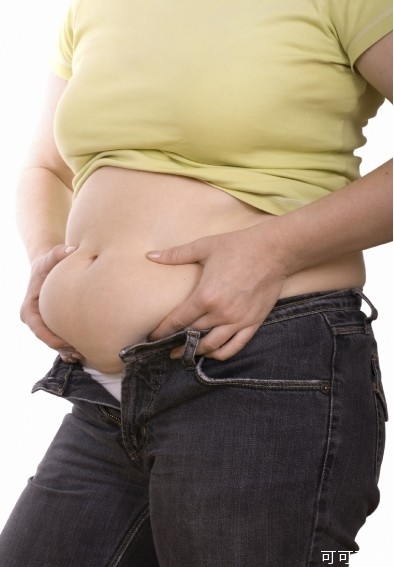(单词翻译:单击)

Science and Technology Animal obesity The fat cat cometh
科技 动物肥胖 肥猫报到
It is not just human beings that are getting fatter. Animals are, too
不只人类正在变胖,动物亦然
IN THEIR attempts to explain the global epidemic of obesity, researchers have often taken to fingering culprits beyond people's direct control. It is now believed that increased levels of stress, climate change and even artificial light at night may contribute to expanding waistlines. However, if such factors affect humans, they ought, in principle, to have similarly nefarious effects on other creatures. This should hold especially true for species that are physiologically similar to people and live in proximity to them. Pet owners have long fretted that this may, indeed, be happening.
在试图解释全球流行的肥胖时,研究人员往往指陈人们无法直接控制的元凶。人们现在认为,压力水平上升、气候变化、甚至连夜晚的人工照明都有助于扩大腰围。但是,如果这些因素影响人类,那么按理说它们对其它生物应该有同样的恶果。这种影响对那些在生理上与人类相似且靠近人群生活的物种应该尤其成真。宠物的主人们对此早就苦恼不已,的确这种影响有可能发生。
Of course, anecdotal evidence carries little weight, so a group of researchers led by Yann Klimentidis, of the University of Alabama, decided to check whether animal obesity rates do in fact mirror the worrying trend among people. They published their findings this week in the Proceedings of the Royal Society.
当然,道听途说不足为据,所以美国阿拉巴马大学的一组研究人员在扬?克利曼泰迪斯的领导下,决定核对核对动物的肥胖率是否跟人们的担忧趋势确实相符。他们在本周的《英国皇家学会会刊》上发表了他们的研究结果。
Dr Klimentidis and his team set about their task by scouring online repositories of scientific papers, contacting fellow researchers and even petitioning pet-food companies for data on changes in animals' bodyweights over the decades. They limited their search to mammals, whose bodies work much like humans' do—and, specifically, to those mammals living with or around people in the rich world.
克利曼泰迪丝博士和他的小组着手完成任务,他们搜索网上的科学论文库、联系其它同道研究人员、甚至向宠物食品公司请阅近几十年来动物体重的变化数据。他们把搜索锁定在哺乳动物上,因为哺乳动物的身体跟人类的身体功能非常相似——而且特别把搜索锁定在那些富裕国家里与人共同生活或在人周边生活的哺乳动物上。
The trawl threw up information on more than 20,000 animals from 24 distinct populations covering eight species. These included cats, dogs, mice, rats and several types of monkey. Some were bred in highly controlled research environments. Others lived in people's homes or in the wild. None had their food intake artificially limited or, as with livestock, ramped up.
这次搜罗从24个不同的群落中找出了八个物种2万余只动物的信息。这些物种包括猫、狗、小鼠、大鼠和几种猴。有些是在严格控制的研究环境下饲养的。其它的生活在人的家中或在野外生存。它们的食物摄入量均未人为限制或是象喂牲畜一样加料。
For each population, Dr Klimentidis looked at the animals' weight at an age corresponding to 35 human years. Middle adulthood was chosen to ensure the data were not fudged by the effects of either early development or old-age withering. Any animals that died within a year of this mid-life physical were also excluded.
对于每个群落,克利曼泰迪斯博士都调查了年纪相当于人类35岁的动物的体重。选择成年中期是为了确保数据既不受早期发育的影响也不受老年萎缩的影响而掺假。任何在这个中期体检年内死亡的动物也被排除。
He then proceeded to calculate each population's average weight, as well as its obesity rate, for every decade of available data. The obesity rates were based on a bespoke indicator akin to the body-mass index that is used to gauge (roughly) whether a person is too rotund. This ploy permitted comparison between species in which weights have different meanings. (Nutritionists employ similar tricks to establish what is a healthy body-mass index for children in different age groups.)
接着,他计算出每个群落的平均体重以及肥胖率,每十年取一个可用的数据。肥胖率的计算按预定的指标为基础上进行,预定指标类似于用来衡量(大约)一个人是否太圆的身体-质量指数。这项工作允许在体重意义不同的物种之间进行比较。(营养学家采用类似手法来确定不同年龄段儿童的健康身体质量指标是多少。)
Subsequent number-crunching revealed a statistically significant increase in bodyweight in 11 of the 24 populations. The weights of the other 13 rose too, though not to an extent that was significant for any of the individual groups. Nevertheless, the fact that all of these insignificant changes were upward was, itself, statistically significant. Moreover, the obesity-rate indices followed a similar pattern. Dr Klimentidis reckons the odds of his data having come about by chance are about one in 10m for the weight gain and three in 1m for the rise in obesity.
随后的数字处理揭示了24个群落中有11个体重显着增加。其它13个群落的体重也有增加,不过达不到对于任何个别群体来说都显著的程度。然而,这些微不足道的变化是向上增的这一事实本身就很显著。此外,肥胖率指数遵循了类似的模式。克利曼泰迪斯博士估计,他的数据偶然出现的几率在体重增加方面大约是1000万分之一左右,在肥胖率上升方面大约是100万分之三。
Most intriguingly, perhaps, the laboratory animals showed more pronounced gains than those living outside a lab. This is strange because the sorts of lab animals the researchers looked at tend to be given lots of food and left to nibble at leisure. This practice has not changed for decades. That the animals put on weight nonetheless suggests the phenomenon cannot be caused solely by pet owners appeasing their Garfields, or feral rats rummaging through refuse composed of ever larger quantities of calorie-rich processed food. Dr Klimentidis is unable to pinpoint any single mechanism that could account for his results. But this does not stop his data from lending exculpatory explanations for fat tummies more credence.
或许最有趣的是,实验室动物比非实验室动物表现出更为明显的体重增加。这很奇怪,因为研究人员观察的各种实验室动物往往被给予大量食物,且让它们在闲暇时一点一点蚕食。这种做法几十年来都没有改变。尽管这样动物还在发胖,这说明发胖现象不可能是单由宠物的主人安抚他们的加菲猫引起的,或者单由野生鼠完全不吃大量富含高卡路里的加工食品引起的。克利曼泰迪斯博士无法查明任何一种可以解释其研究结果的单一机制。但是,这并不妨碍借用他的数据对大腹便便作出开脱罪责的解释,而不是把罪责归于餐桌。


